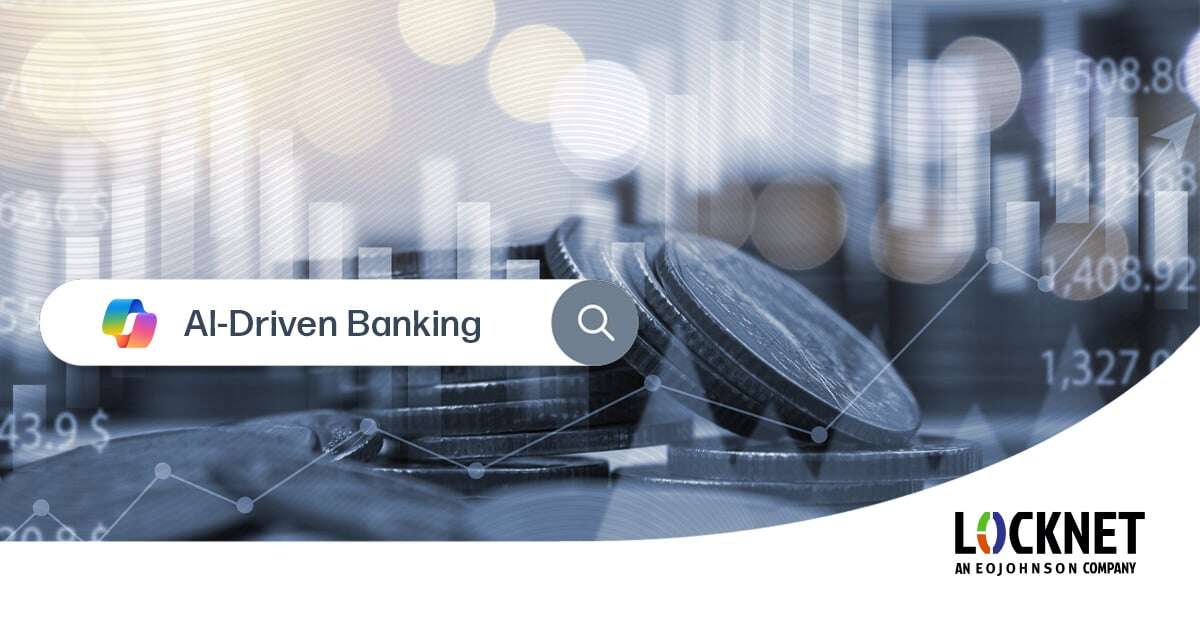Industries We Serve
World Class IT Support & Service
Real People. Right Now.
About Locknet® IT Services
From the first hello, the Locknet® team is dedicated to serving you and your needs.
Real People. Right Now.
From the first hello, the Locknet® team is dedicated to serving you and your needs.


As artificial intelligence continues to revolutionize the way we work, banks and financial institutions are increasingly embracing AI-powered tools to drive efficiency, improve customer experiences, and enhance security. Microsoft Copilot, with its sophisticated AI capabilities, offers substantial potential for banks and financial services by automating workflows, supporting strategic decision-making, and enabling intelligent customer interactions. In this blog, we’ll explore how Microsoft Copilot is empowering financial institutions, including real use cases, the benefits, and essential considerations for a seamless and secure integration.
Banks handle vast amounts of data daily, and Microsoft Copilot aids in quickly analyzing this data to provide actionable insights. For example, portfolio managers can use Copilot to analyze market trends and make better investment recommendations by combining data from various sources, spotting patterns, and generating reports on economic conditions or potential risks. This saves analysts significant time and enhances the bank's risk management capabilities by identifying potential loan defaults faster and more accurately.
Customer service is at the heart of banking, and Copilot makes it more effective by helping service reps better understand customer needs, anticipate questions, and offer tailored solutions. It can pull up relevant client data during interactions, ensuring reps have context on previous queries, preferences, and transaction history, leading to more personalized service. For instance, a bank using Copilot can automatically generate quick responses to common inquiries about account balances or recent transactions, while summarizing past interactions for more complex issues, helping human agents resolve matters more efficiently.
Compliance is critical and time-consuming. Copilot helps by automating compliance processes, reducing manual workload, and ensuring accuracy. It can scan transaction records, analyze documentation, and verify compliance, alerting if any non-compliant activities are detected. In fraud detection, Copilot enhances Anti-Money Laundering programs by scanning transactions, flagging suspicious ones, and alerting compliance officers for review, thereby increasing the speed and efficiency of fraud detection.
In addition to customer-facing functions, Copilot also transforms back-office processes. From managing financial records to automating workflows, it reduces the time employees spend on routine tasks, allowing them to focus on strategic initiatives. For example, banks using Copilot to process loan applications can automatically analyze documents, perform background checks, and pull relevant credit scores, speeding up approvals while ensuring compliance with policies and regulatory standards.
While the advantages of Microsoft Copilot are evident, financial institutions should review our deployment guide and also be mindful of certain considerations:
Microsoft Copilot is paving the way for a future where financial institutions can operate more efficiently, deliver exceptional customer experiences, and stay ahead of compliance and security risks. We recommend referencing our other Microsoft Copilot guides, which include practical use cases for any industry, tips for writing effective Copilot prompts, and our Microsoft Copilot deployment guide.
With the right considerations in place, Locknet is here to help our banking clients elevate their services and strengthen their capacity to innovate in an increasingly competitive landscape. Contact us today to get started!
Microsoft

Onalaska, WI Waterloo, IA Wausau, WI Eau Claire, WI Burnsville, MN
You are now leaving locknetmanagedit.com. Please check the privacy policy of the site you are visiting.